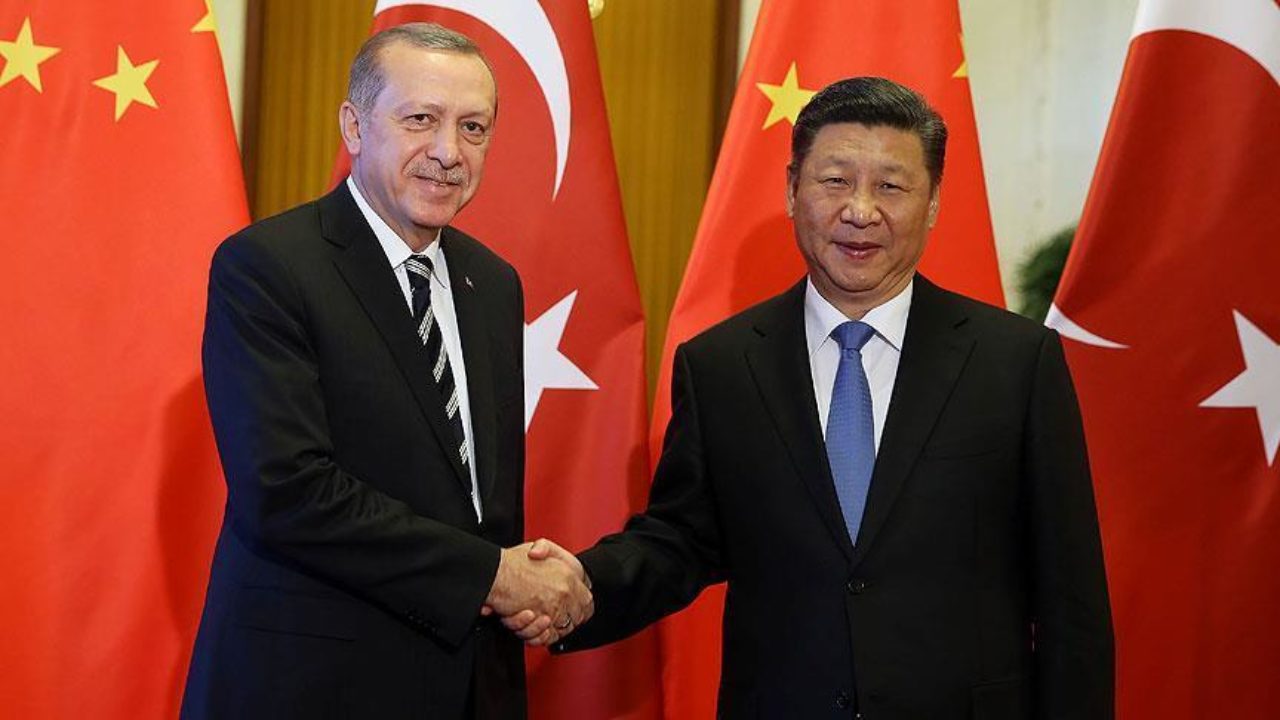(CNSNews.com) – China in June transferred $1 billion to Turkey to boost its foreign reserves at a time when Turkey’s troubled economy was facing additional pressures over a controversial local election rerun in Istanbul, Bloomberg has reported.
The injection of funds, describedby the financial news agency as “Beijing’s biggest support package ever for President Recep Tayyip Erdogan,” came shortly before Erdogan raised eyebrows during a visit to China by changing his tune on Beijing’s treatment of its Muslim Uighur (Uyghur) minority.
During that early July visit, Erdogan was cited by Chinese state media as saying the Uighurs are enjoying “a happy life.” In fact, China has come under a harsh international spotlight for its incarceration of more than a million Uighurs in “re-education” camps in the far-west Xinjiang province.
Critics accuse China of using its financial and political clout to undercut other countries’ opposition to its more controversial policies. Turkey’s turnaround on the Uighurs has been particularly noteworthy.
Erdogan in 2009 accused China of genocide in Xinjiang. Over the years since, at a time when most of the Muslim-majority states in the Organization of Islamic Cooperation (OIC) were silent on the plight of their fellow Muslims in Xinjiang, Turkey continued to be an exception.
The reason is evident: Uighurs are a Turkic ethic group with ethno-linguistic and historic links to the Turks, and Turkey is home to the largest exiled Uighur community outside of Central Asia, some 35,000-strong.
As recently as February, Erdogan’s foreign ministry in a statement accused China of a deliberate campaign to eradicate “the ethnic, religious and cultural identities of the Uighur Turks and other communities in the region.”
It said the internment camps in Xinjiang were used for “torture and political brainwashing.” (Beijing calls the camps “vocational education and training centers” used to “deradicalize” Muslims as part of a campaign against terrorism and extremism.)
China bristled at that criticism, and its ambassador in Ankara, Deng Li, warned that criticizing a friend publicly was not constructive, and could negatively impact commercial and economic relations.
The warning seems to have worked: Over the following months China’s central bank released the substantial funding – in line with a currency swap deal first agreed in 2012 to enable bilateral trade in local currencies – and Erdogan dropped his public criticism of China’s Uighur policies.
Islamic bloc ‘comments the efforts’
China’s diplomatic efforts have borne fruit this year, especially at the United Nations, where 37 countries signed a letter to senior U.N. officials praising China’s policies in Xinjiang.
Notably, more than half of the signatories were OIC member-states.
The Islamic bloc is not usually known for its reticence in speaking out against what it regards as poor treatment of Muslims around the world. Yet when OIC foreign ministers met last March, they signed up to a document saying the bloc “commends the efforts of the People’s Republic of China in providing care to its Muslim citizens.”
And when OIC heads of state held an annual summit two months later, the communiques they issued addressed numerous situations affecting Muslims around the world, but made no mention of Xinjiang or Uighurs.
The Trump administration is frequently accused of anti-Muslim policies and sentiment. Yet in contrast to the OIC’s silence on the matter the U.S. has led international criticism of the Xinjiang situation.
In June, Secretary of State Mike Pompeo accused the Chinese Communist Party leadership of “methodically attempting to strangle Uighur culture and stamp out the Islamic faith” in Xinjiang.
Last month, Pompeo told participants at a State Department international ministerial on religious freedom that China’s mass incarceration of Uighurs was “one of the worst human rights crises of our time” and “the stain of the century.”
(Pompeo also accused China of putting pressure on some countries to boycott the ministerial, and praised those that had “defied the Chinese pressure to come here.”)
On the sidelines of the ministerial, President Trump met in the Oval Office with a Uighur activist among a group of 27 victims of religious persecution from 16 countries. Just a week ago, Vice President Mike Pence met in Washington with another Uighur advocate, one of a group of what the White House called “champions of religious freedom.”
Xinjiang, a resource-rich region that makes up about one-sixth of China’s territory, enjoyed short-lived independence under the name East Turkistan in the 1930s-40s. It came under communist Chinese rule in 1949, one year before China occupied neighboring Tibet. (Together, Xinjiang and Tibet comprise almost one-third of China’s total landmass.)
Xinjiang has birthed some radical Islamic movements, including at least one al-Qaeda ally, and Beijing says its policies there are part of a broader campaign against the “three evils” of separatism, extremism, and terrorism.
But Western governments accuse China of smearing as terrorists all Uighurs advocating greater autonomy or independence, and of using counterterrorism as an excuse to crack down on Uighurs across the board.
Scholars report an orchestrated assimilation effort. An influx of Han Chinese has changed the demographics significantly: Uighurs now comprise just 46 percent of the region’s population, down from 75 percent in 1945, while Han Chinese account for almost 40 percent, up from just nine percent in 1945.
Source: cnsnews



